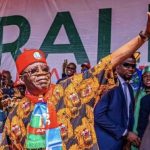Quite frankly, no one can persuade me that any Muslim—of whatever creed or persuasion—can be an enemy of the Prophet Muhammad (peace be upon him). The more relevant and debatable question is whether one has disrespected him, and this largely depends on the circumstances, the context, and the interpretation of a person’s words.
The sanctity of the Prophet’s person has long been established and carefully codified by scholars. Qadi ‘Iyad’s al-Shifa and Ibn Taymiyya’s al-Sarim al-Maslul stand as enduring testimonies to this fact.
It is against this backdrop that the recent imbroglio in Kano, sparked by the protests of some Sufi groups against Malam Lawan Triumph, should be viewed. The clash is not unexpected, given the historic disparities between different schools of thought within Islam. Such disputes are not unique to Nigeria; they span centuries and empires across the Muslim world.
Yet a troubling precedent appears to be taking root in Nigeria: the politicisation of blasphemy. Increasingly, accusations of disrespect towards the Prophet are being wielded as weapons of propaganda, often built on assumption, weak reasoning, or outright misrepresentation.
At the heart of this issue lies a tripod of principles that every Muslim must observe when referring to the Prophet: to love him, to obey him, and to revere him. The Qur’an itself commands, “Do not make the call of the Prophet among you like your call of one another.” To do otherwise is to reduce the Prophet’s station to the level of ordinary men.
In Hausa, there exists a powerful linguistic and cultural tool known as saye—a form of euphemism, a way of repressing harsher words in favour of expressions that carry dignity. Instead of kashi one might say ba haya; instead of jima’i one might say kusantar iyali. In this same spirit, the phrase wafatin Manzon Allah (SAW) carries more reverence than mutuwar Manzon Allah (SAW). Such socio-linguistic nuance is not mere ornamentation; it is a matter of sanctity, and it deserves deeper attention in tafsir for Hausa-speaking communities.
To equate the case of Malam Lawan Triumph with that of Abduljabbar is, therefore, an injustice. I have personally watched Lawan Triumph’s video with an open mind, placing my loyalty to the Prophet above any personal inclination. The comparison does not stand. Abduljabbar, in his blasphemous assertions, paraphrased outrageous statements that had no grounding in scholarship. He claimed that he read them from Bukhari and other books but could not prove it. He could cite no precedent, no source, no authority. Malam Lawan’s case is of an entirely different order. They say he described the Prophet (SAW) with animals, while any right-thinking person knows otherwise from the video. Abduljabbar inclined towards Shi’a in condemning the authentic sources, while Malam Lawan safeguarded them.
The broader danger lies not in Lawan Triumph’s words but in the machinery of propaganda now at play. Propaganda, by definition, is a deliberate misrepresentation of fact intended to mislead the masses. It is a weapon sharpened not for truth but for manipulation. Its effects are clear: social media ablaze with venom, pulpits turned into platforms of anger, and ordinary Muslims caught in the crossfire.
History offers chilling reminders. Aldous Huxley once wrote: “The propagandist’s purpose is to make one set of people forget that certain other sets of people are human.” Joseph Goebbels, Nazi Germany’s propaganda chief, perfected the art, declaring: “A lie told once remains a lie, but a lie told a thousand times becomes the truth.” Winston Churchill wryly observed: “A lie gets halfway around the world before the truth has a chance to get its pants on.”
It is therefore incumbent upon religious leaders, scholars, and indeed ordinary believers to resist the temptation of propaganda. To weaponise the name of the Prophet is to play with fire.
The ultimate goal of this propaganda is to have one of the Ahlus-Sunnah jailed like Abduljabbar. They tried Prof. R/Lemo and failed. On all accounts, their charges are baseless, lacking grounds worthy of any consideration.
One question still lingers: does an author of a book retain not only the right of ownership but also the right to decide who may read, study, or teach it? This has emerged in the debate over Jawahir al-Ma‘ani and Malam Lawan’s engagement with it. Such questions require sober and scholarly answers, not the theatrics of street propaganda.
May Allah guide the Shura Council in their deliberations, may Kano State prosper in peace, and may the ‘ulama—whether of Ahlus-Sunnah or the Sufi tradition—learn not only to coexist but to learn from one another.
Sunusi Iguda is an Associate Professor of Mass Communication at the Faculty of Communication, Bayero University, Kano.






